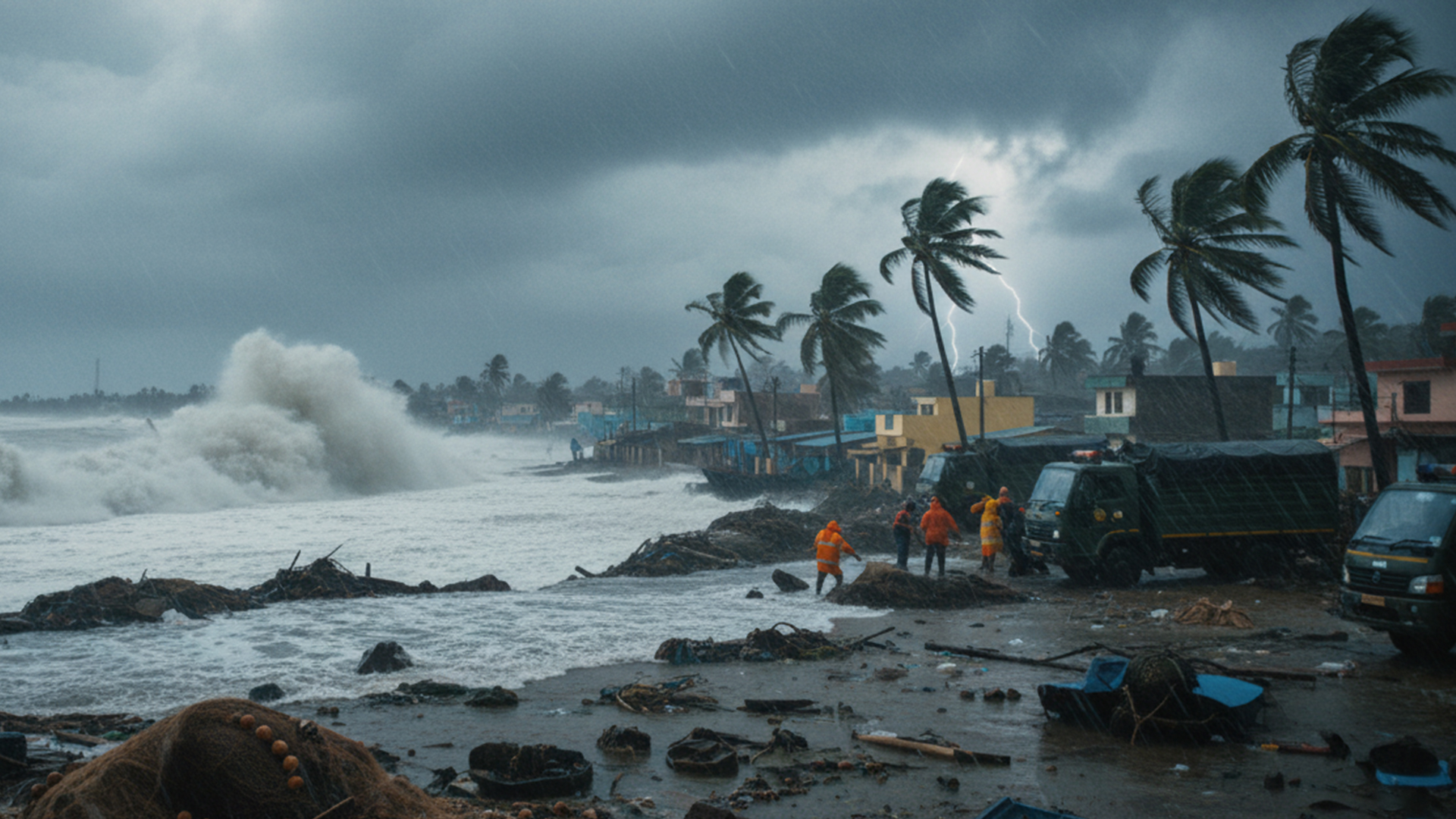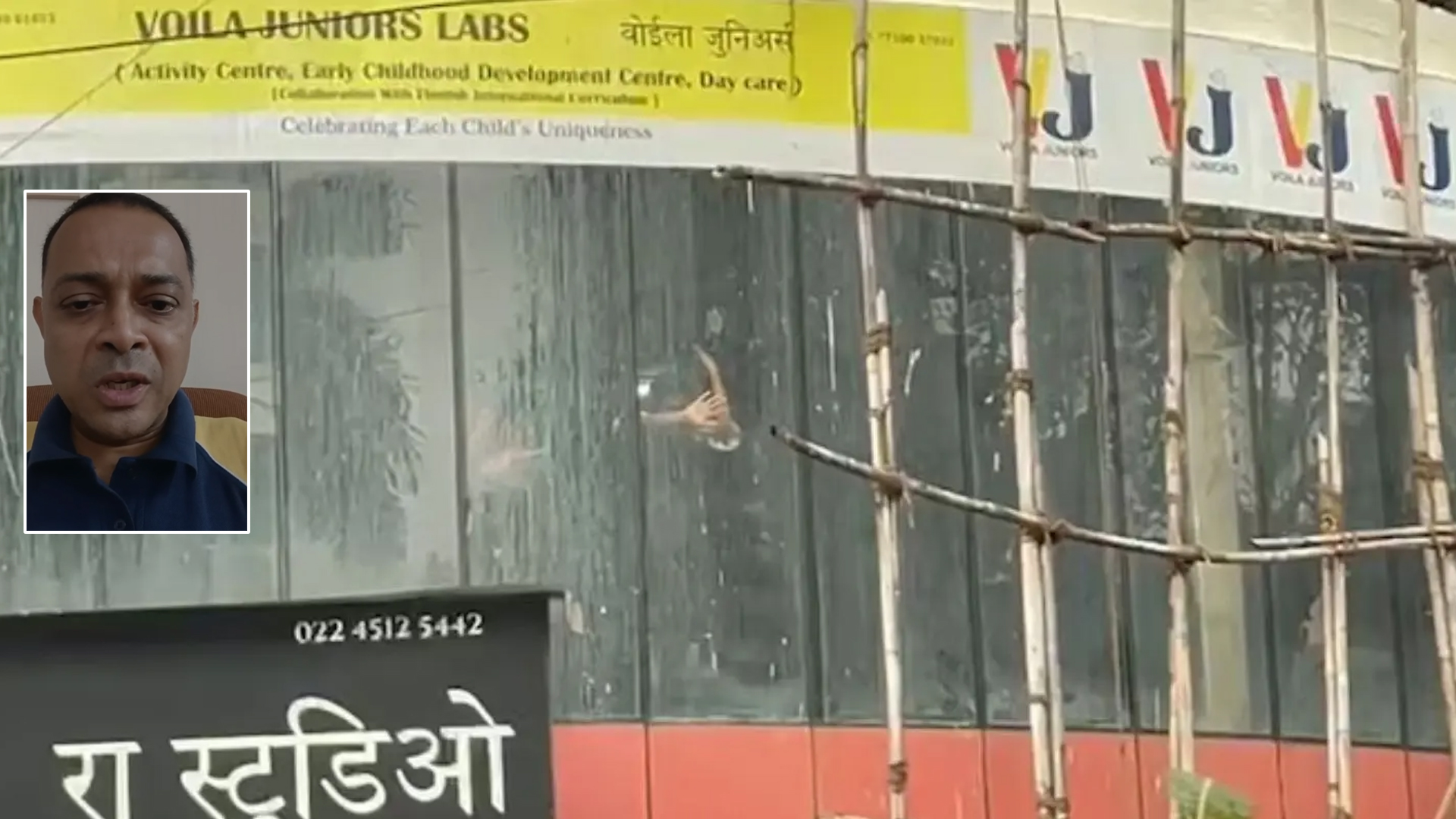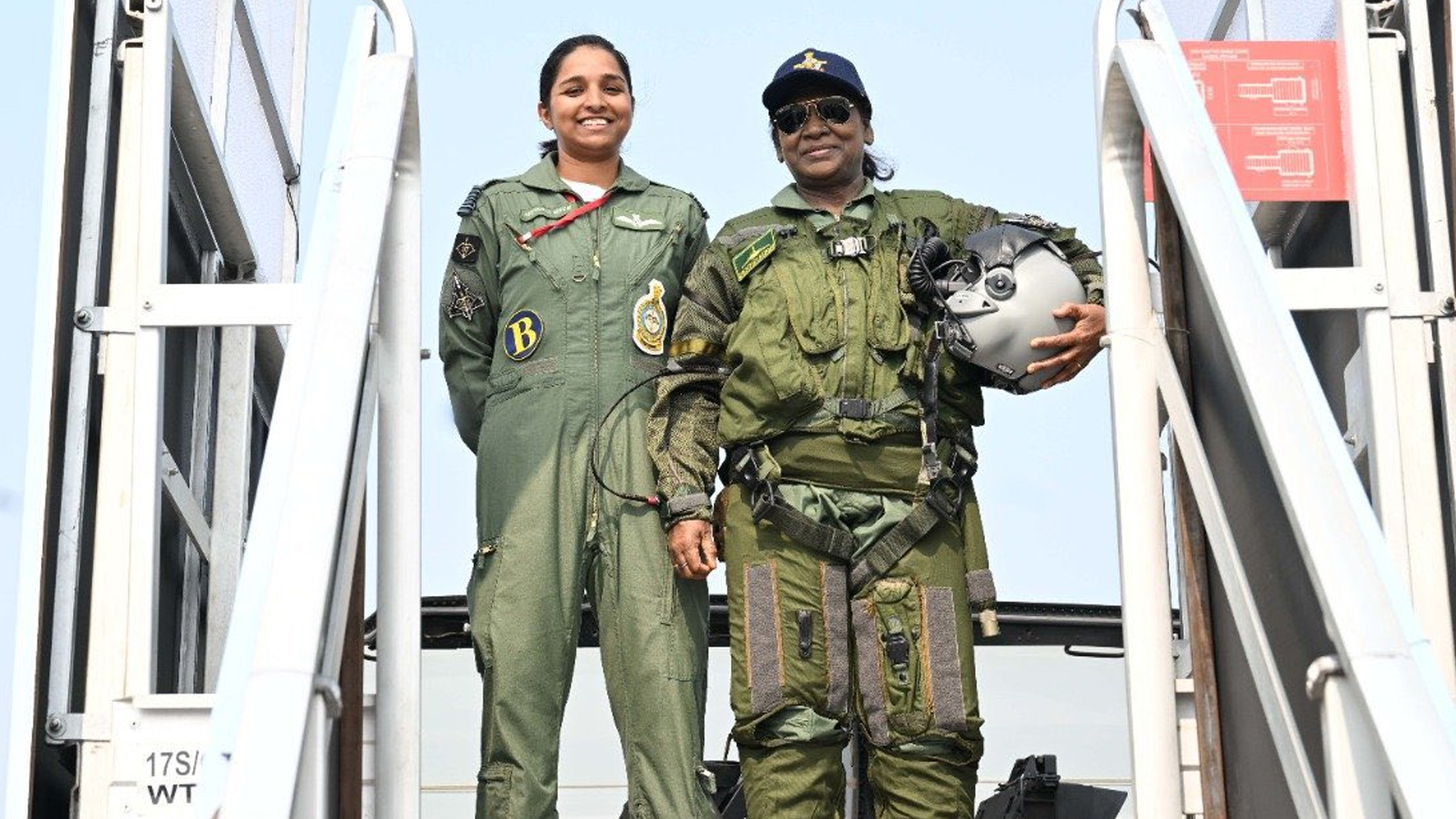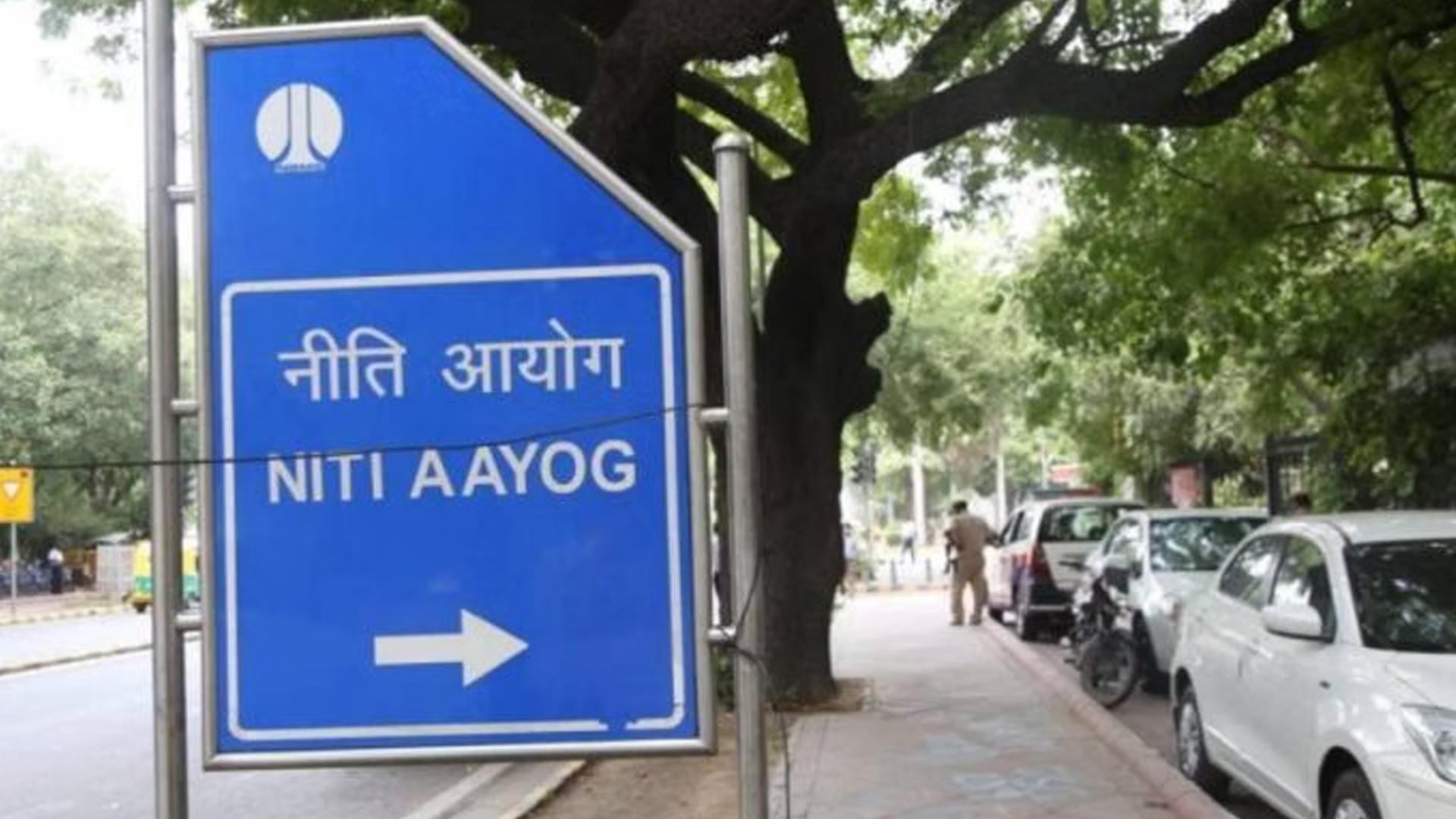As Cyclone Montha accelerates towards India’s east coast, state authorities in Andhra Pradesh and Odisha have activated full disaster-response mechanisms, issuing bulletins on anticipated landfall, heavy rainfall, and strong winds.
According to the India Meteorological Department (IMD), Montha is expected to intensify into a severe cyclonic storm by the morning of October 28. At landfall, sustained winds of 90–100 km/h, with gusts up to 110 km/h, are likely. Coastal regions may also experience extremely heavy rainfall of more than 21 cm in 24 hours. Multiple districts of both states are already under red and orange alerts.
In Andhra Pradesh, key coastal districts including Kakinada, East Godavari, West Godavari, Konaseema, and Eluru have been placed on high-alert status. School closures have been ordered across the affected region from October 27 through October 31. Over 6,000 people in 34 coastal villages in Konaseema have been shifted to relief shelters. Health authorities have prioritised the evacuation of vulnerable individuals. More than 400 expecting mothers nearing delivery have been moved to hospitals in secure zones. Telecom and power companies have been asked to ensure standby systems.
Across Odisha, eight southern districts, including Gajapati, Ganjam, Kandhamal, Kalahandi, Koraput, and Rayagada, have been declared red zones. State departments for energy, health, and agriculture have reviewed contingency plans and activated relief centres and cyclone shelters. Water-release schedules from reservoirs have been adjusted, and large-scale inspections of drainage and flood-prone areas are underway. Officials have canceled all leave and mobilised essential commodities in vulnerable locations.
Beyond the immediate landfall zone, Tamil Nadu has been placed under orange alerts for heavy rainfall, with districts like Tiruvallur, Kanchipuram, and Chennai expected to receive “heavy to very heavy” showers. States such as Telangana and Chhattisgarh are also on alert for heavy rain and strong winds on October 28, even if they are not in the direct strike zone.
Authorities urge residents in coastal and low-lying areas to monitor weather updates, heed evacuation orders, and prepare essential supplies such as water, food, medicines, torch/cell-phone back-ups, and important documents. Fishermen are advised not to venture into the sea from October 25 through 29. Travel in vulnerable zones should be avoided, and families are encouraged to familiarise themselves with the nearest cyclone shelter or safe zone.
Also Read: Kerala Becomes India’s First Poverty-Free State on November 1






